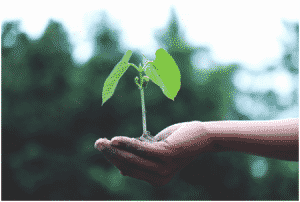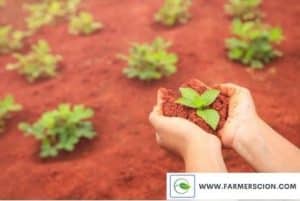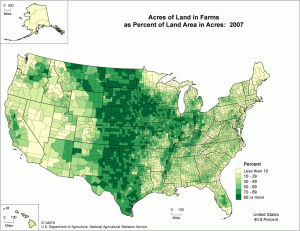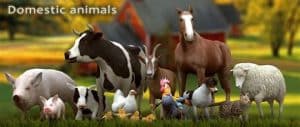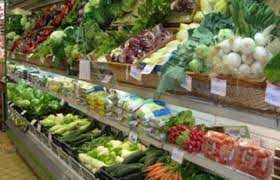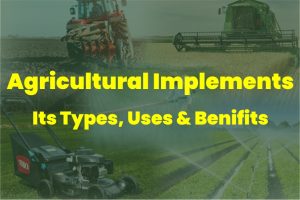Monoculture Farming and Its Advantages, Disadvantages and Sustainable Solutions
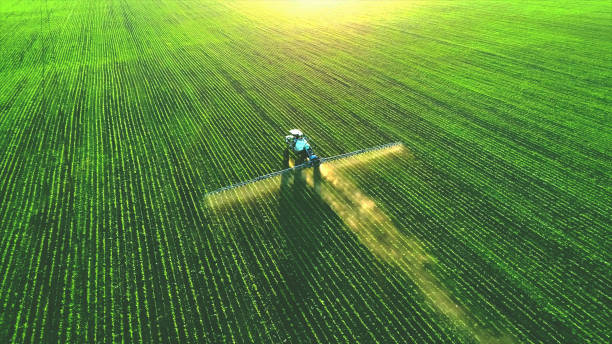
Agriculture is more than a livelihood in India—it’s a way of life. With increasing pressure to produce higher yields to feed a growing population, many farmers turn to monoculture farming as a practical solution. This farming method, which focuses on cultivating a single crop or rearing one type of livestock in a specific area, is widely practiced across the country. However, while monoculture simplifies farming processes and meets market demands, it brings challenges like soil degradation, pest outbreaks, and environmental damage.
This article explores monoculture farming in depth, discussing its advantages and disadvantages while offering actionable strategies to balance productivity with sustainability. Whether you’re growing paddy in Tamil Nadu, sugarcane in Maharashtra, or wheat in Punjab, the insights provided here will help you make informed decisions for your farm.
What Is Monoculture Farming?
Monoculture farming refers to the cultivation of a single crop or the rearing of one livestock species on a specific plot of land. It is a focused approach designed for efficiency, but it often excludes other crops or livestock types from the same space.

Examples of Monoculture Practices in India:
- Crop-based monoculture: Paddy in Tamil Nadu, cotton in Gujarat, and tea in Assam.
- Livestock-based monoculture: Poultry farms focused solely on broiler chickens.
In contrast, polyculture farming involves growing multiple crops or integrating crops with livestock on the same land. While polyculture promotes biodiversity and reduces risks, monoculture focuses on streamlined processes, which have both benefits and drawbacks.
Why Indian Farmers Choose Monoculture
Monoculture farming has gained popularity in India for several reasons:
- Market Demand: Cash crops like sugarcane, cotton, and wheat dominate the Indian agricultural landscape because of strong demand and government-backed procurement programs.
- Simplified Farming: With a single crop, farmers can focus on specific tasks such as sowing, pest control, and harvesting, making farming more manageable.
Economic Incentives: Monoculture fields are often eligible for subsidies and incentives under schemes like PM-KISAN and MSP programs.
Monoculture Vs. Polyculture
Monoculture Farming:
- Focus: Single crop or livestock type.
- Benefits: Higher efficiency, streamlined operations, and suitability for mechanization.
- Drawbacks: Environmental risks, higher vulnerability to pests, and declining soil fertility.
Polyculture Farming
- Focus: Multiple crops or livestock types in one field.
- Benefits: Improved biodiversity, better soil health, and reduced risk of complete crop failure.
- Drawbacks: More labor-intensive and complex management.
Example: A farmer in Karnataka growing only rice (monoculture) vs. a farmer in Kerala growing rice interspersed with coconut and vegetables (polyculture).
Advantages of Monoculture Farming
Monoculture offers practical advantages, particularly for farmers aiming to maximize efficiency and yields.
1. Simplified Farming Operations
Monoculture reduces the complexity of managing multiple crops. Farmers can focus on optimizing irrigation, fertilization, and pest control for a single species, saving time and resources.
Example: Wheat farmers in Punjab rely on standardized practices, including specific sowing windows and mechanized harvesting, to ensure consistency.
2 . Higher Yields for Commercial Crops
By concentrating resources on a single crop, farmers can achieve higher yields tailored to meet market demand. For example, paddy farmers in Andhra Pradesh produce higher yields by leveraging region-specific irrigation systems
3. Better Integration of Technology
Monoculture allows farmers to adopt advanced tools and practices such as:
- Drip irrigation systems: Ideal for water-intensive crops like sugarcane.
- Satellite-based monitoring: Detects pest outbreaks early, saving crops from damage.
Case Study: Farmers in Maharashtra using drone technology for spraying fertilizers on monoculture sugarcane fields have reported reduced labor costs and improved crop health.
4. Cost Savings Through Specialization
Specializing in one crop reduces labor and operational expenses. Farmers can streamline their processes and buy inputs in bulk, reducing overall costs
Disadvantages of Monoculture Farming
While monoculture brings efficiency, its disadvantages often outweigh its short-term benefits if not managed sustainably.
1. Soil Degradation and Nutrient Depletion
Continuous cultivation of the same crop exhausts soil nutrients, reducing fertility over time. This forces farmers to rely heavily on synthetic fertilizers, which can harm soil health in the long run.
Example: Rice monoculture in Tamil Nadu has led to widespread nitrogen depletion in paddy fields.
Solution: Introduce crop rotation or organic amendments like compost to replenish nutrients.
2. Increased Pest Vulnerability
Pests thrive in monoculture fields due to the absence of natural predators. For instance, the pink bollworm infestation in cotton fields has caused significant losses for farmers in Gujarat.
Solution: Adopt Integrated Pest Management (IPM), which includes crop rotation and the use of natural pest repellents like neem oil.
3. Overuse of Chemical
To combat pests and replenish nutrients, monoculture farmers often overuse:
- Synthetic fertilizers: Harm soil microbes.
- Pesticides: Affect nearby ecosystems and pollinators.
4. Environmental Consequences
Monoculture farming harms biodiversity and disrupts ecosystems. Pollinators like bees, essential for natural reproduction, face habitat loss in monoculture fields.Solution: Plant hedgerows or wildflowers around fields to attract pollinators.
Practical Tips for Sustainable Monoculture Farming
Farmers can mitigate the negative effects of monoculture by adopting these practices:
1. Rotate Crops to Restore Soil Health
Alternating crops like paddy and pulses can restore nitrogen levels in the soil. Pulses naturally fix nitrogen, reducing dependency on synthetic fertilizers.
Tip: Plan a 3-year rotation cycle for optimal soil recovery.
2. Use Organic Amendments
Replace chemical fertilizers with organic alternatives such as:
- Cow dung manure
- Vermicompost
- Green manure (sesbania)
3. Diversify Marginal Land with Polyculture
Introduce polyculture on unused or marginal land. Planting vegetables or trees alongside cash crops supports biodiversity and generates additional income.
Example: Coconut farmers in Kerala often grow spices like black pepper on the same land.
4. Water Conservation Techniques
Adopt water-saving methods like:
- Drip irrigation: Reduces water wastage in sugarcane fields.
- Mulching: Conserves moisture and prevents weed growth.
Regional Insights: Monoculture Farming in India
Punjab and Haryana
- Dominant Crops: Wheat, rice.
- Challenges: Over-extraction of groundwater, and soil salinity.
- Solutions: Agroforestry and micro-irrigation systems.
Maharashtra
- Dominant Crops: Sugarcane, cotton.
- Challenges: Pest outbreaks and high fertilizer usage.
- Solutions: Introduce IPM and drought-resistant crop varieties.
Kerala
- Dominant Crops: Tea, spices.
- Challenges: Soil erosion in hilly terrains.
- Solutions: Terracing and intercropping with shade trees.
Future Trends in Monoculture Farming
1. Digital Agriculture
The integration of AI tools, IoT-based sensors, and drone technology is revolutionizing monoculture management.
Example: Farmers using satellite imaging to monitor sugarcane growth in real-time.
2. Organic Farming Practices
Consumer demand for organic produce is rising. Farmers practicing organic monoculture can charge premium prices, especially for export crops like spices.
3. Government Initiatives
Farmers can benefit from policies like:
- PM-KUSUM: Solar-powered irrigation systems.
- Soil Health Card Scheme: Regular testing and recommendations for soil improvement.
Actionable Steps for Farmers
- Educate Yourself: Attend agricultural workshops or online webinars to learn about sustainable practices.
- Start Small: Experiment with crop rotation or mixed farming on a small plot before scaling.
- Use Government Resources: Leverage subsidies and schemes to reduce input costs.
- Connect with Experts: Join farmer groups to share knowledge and strategies.
Conclusion
Monoculture farming offers simplicity and high yields, making it a practical choice for Indian farmers. However, its environmental and economic risks necessitate a balanced approach. By integrating sustainable practices like crop rotation, natural pest control, and water conservation, farmers can ensure the longevity of their lands while increasing productivity.
Explore our related articles on smart irrigation, organic fertilizers, and modern agricultural technology for more insights into sustainable farming. Share your thoughts in the comments and subscribe to our newsletter for regular updates!

